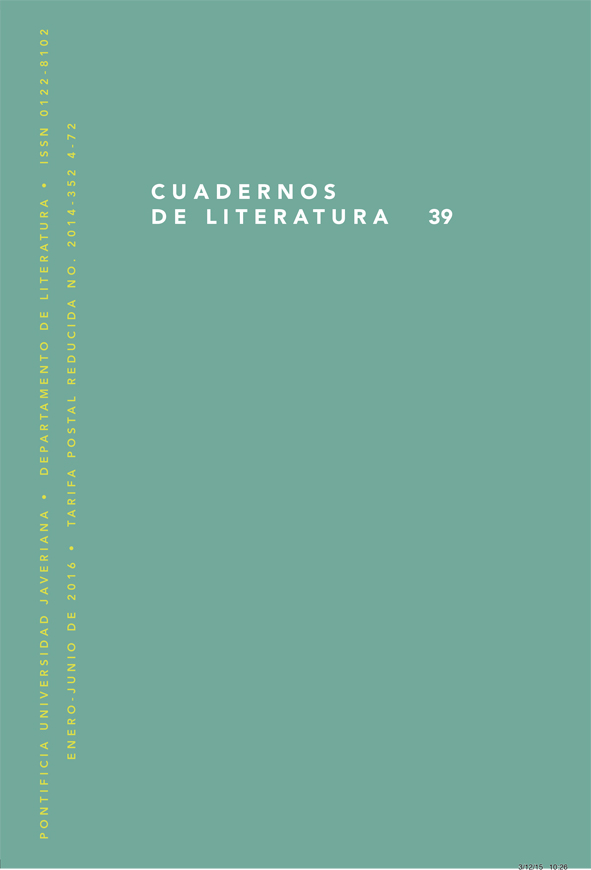Abstract
En las dos últimas décadas muchos autores y cineastas residentes dentro o fuera de Cuba se han referido al contexto del Período Especial en sus creaciones artísticas. En este ensayo quisiera reflexionar sobre las modalidades de la representación del hambre, su exploración e incluso explotación. El análisis de un corpus de películas y novelas que se relacionan con el Período Especial me ha llevado a proponer cuatro «estrategias» que se alejan cada vez más del mundo referencial marcado por la penuria: estereotipo, contraste, relegación al segundo plano, metonimia (en el sentido de desplazamiento). Ilustraré cada una de estas «estrategias» comentando brevemente películas como Alicia en el Pueblo de Maravillas (Díaz Torres), Suite Habana y Madagascar (Fernando Pérez) y novelas como El hombre, la hembra, el hambre (Daína Chaviano), Te di la vida entera (Zoé Valdés), Las Bestias (Ronaldo Menéndez), El Rey de La Habana (Pedro Juan Gutiérrez), Silencios (Karla Suárez), La sombra del caminante (Ena Lucía Portela). Terminaré con el estudio de Las comidas profundas de Antonio José Ponte que reúne y rebasa las estrategias propuestas. Mis análisis revelan que estas diferentes « estrategias » sirven objetivos específicos en el campo de la ética, la estética y la poética de estas expresiones artísticas.
Cuadernos de Literatura is registered under a Creative Commons Attribution 4.0 International Public License. Thus, this work may be reproduced, distributed, and publicly shared in digital format, as long as the names of the authors and Pontificia Universidad Javeriana are acknowledged. Others are allowed to quote, adapt, transform, auto-archive, republish, and create based on this material, for any purpose (even commercial ones), provided the authorship is duly acknowledged, a link to the original work is provided, and it is specified if changes have been made. Pontificia Universidad Javeriana does not hold the rights of published works and the authors are solely responsible for the contents of their works; they keep the moral, intellectual, privacy, and publicity rights.
Approving the intervention of the work (review, copy-editing, translation, layout) and the following outreach, are granted through an use license and not through an assignment of rights. This means the journal and Pontificia Universidad Javeriana cannot be held responsible for any ethical malpractice by the authors. As a consequence of the protection granted by the use license, the journal is not required to publish recantations or modify information already published, unless the errata stems from the editorial management process. Publishing contents in this journal does not generate royalties for contributors.


